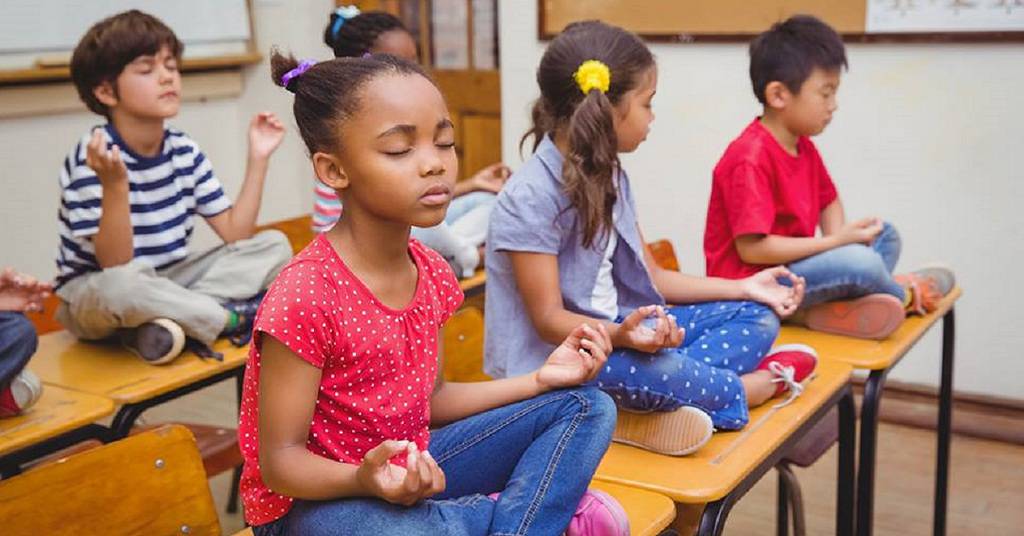At YogaKids, we speak to a lot of folks who teach children’s yoga. We also speak to lots of folks who WANT to teach children’s yoga. Some folks have self-doubt about their abilities to get up in front of a class. (To those beautiful people, we say that our program is guaranteed to bring out your best inner YogaKids Teacher.) Other folks — the ones who want to teach in schools — sometimes have trepidation about stepping on toes. We recently received a great inquiry about this…
“If I’m going to be teaching in schools, I want to be appropriate and in-line with standards [regarding religious teachings]. What is your stance on this?”
Such a thought-provoking question! From our perspective, yoga and religion are simply two different things. Nevertheless, we’ve been active in our community in addressing this topic. Mary Rountree, one of our YogaKids Teachers and Master Mentors, wrote a great article for our Press Room called “Is Yoga Religion?” As an educator in Alabama, she gets asked about this A LOT and has a number of great prepared answers.
“The Yoga Sutras, the most commonly cited text that forms the foundation for all forms of yoga, make no specific theological claims. The non-sectarian nature of this text has allowed it to remain solid for over 1500 years and allows freedom from religion, therefore making yoga a positive for anyone. The adaptability of modern yoga makes it diverse and flexible enough to be practiced with religion or with no religion. There are as many reasons why people do yoga as there are types of people that do yoga. They range from the secular, practical, body-oriented people to the most spiritual people and anything and everything in between. Yoga serves all these types because its teachings are universal.”
As you can see, it IS a great answer … if everyone is willing to listen and debate! But if that’s not the case, we also want to give a practical answer when asked about yoga and religion. Which is what we did with our new friend:
“Our program does include yoga philosophy but that is different than religion. Our recommendation? When you feel like the word ‘yoga’ is liable to spook someone – replace with ‘Mindfulness and Movement!'”
If you’ve been following trends in education, you know that Mindfulness is a big buzz word right now. It’s sweeping the nation and it’s kinda genius, really. Mindfulness can mean many things and, when combined with Movement — really does encompass so much of what yoga is… without the word “yoga.”
Now, does this undermine the word “yoga” and its depth of meaning? It’s a fair question. But our mission is so much bigger than words. Kids need our help, your help, the help of their communities. Words can sometimes get in the way.
What do you think?


In the current age of restlessness, aggression, agitation and impatience Practicing Yoga as a way of life offers a solutions and a reason to remain calm at the body, mind and spirit level which does not belong to any one religion.
I need to know if one needs to have a teaching certificate or yoga certification to be qualify to become kids yoga teacher then trainer. Thanks Robin
There are no prerequisites to our Certification program. 🙂